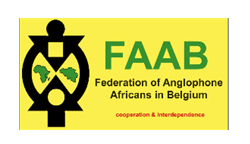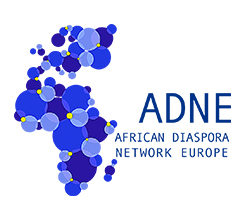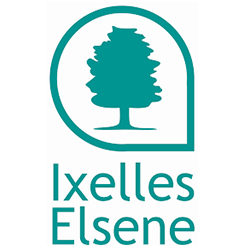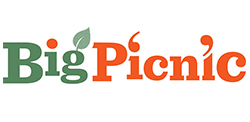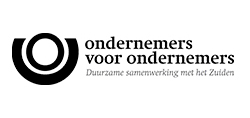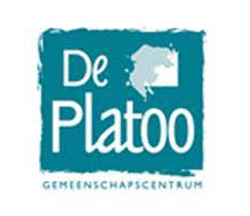
Welcome to 2026! We offer heartfelt best wishes to our partners and supporters,across Africa, the diaspora and Europe. Thank you for being part of our journey to build fair, resilient and culturally rooted food systems.
Looking Back: 2025, a year of strong partnerships and impact: The past year was marked by collaboration and action. Together, we:
-
Organized another successful edition of the African Diaspora Agrofood Forum (ADAF25)
-
Strengthened cross-cultural exchanges and inter-generational culinary knowledge transfer through Vyakulani Africa II
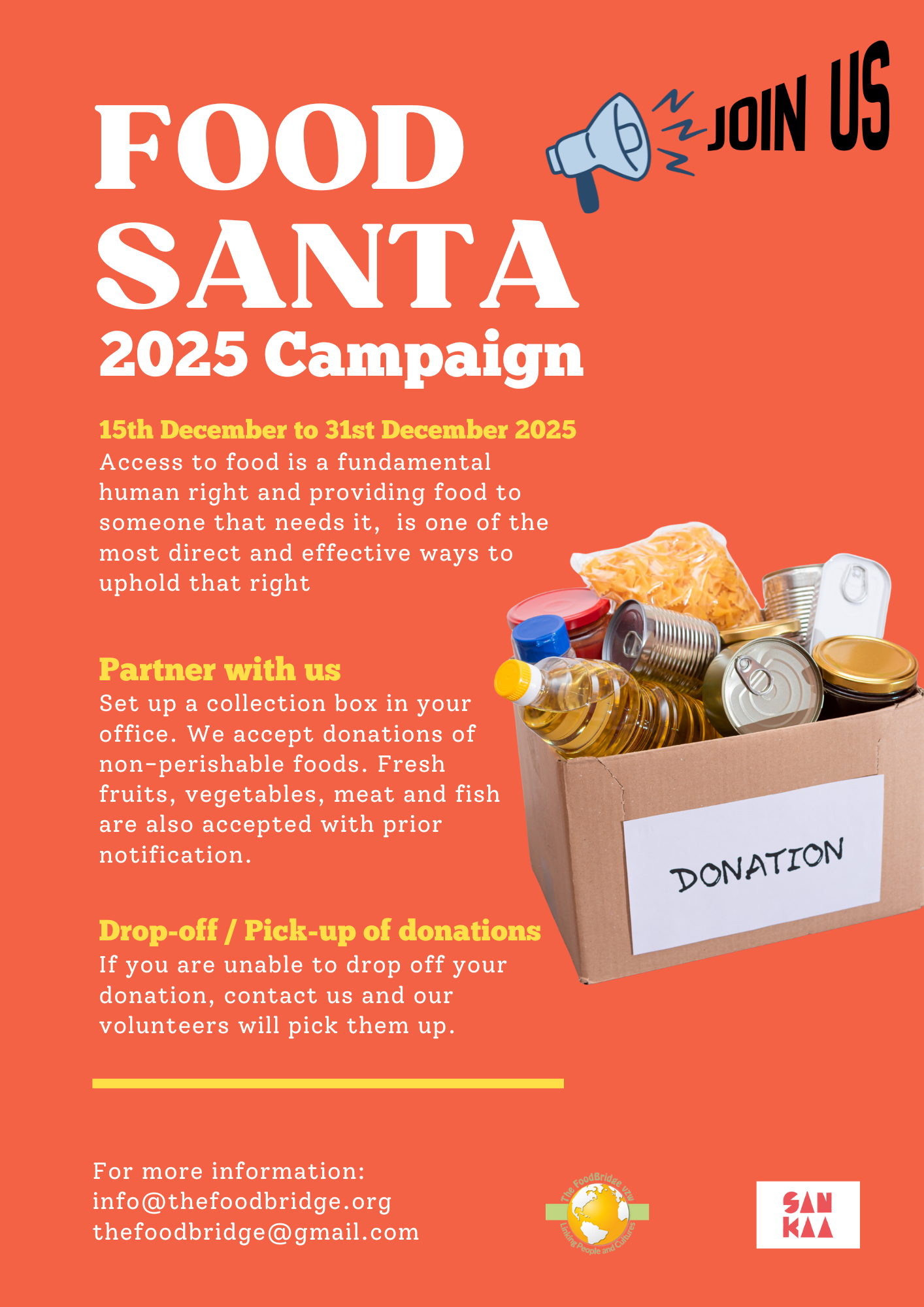
For the past five years, The Food Bridge vzw has been running the Food Santa program every December. Unlike our Helping Hand project—which distributes cooked meals to people experiencing homelessness—the Food Santa initiative focuses on supporting families and individuals who are struggling financially during the festive season.
Our goal is simple: no one should go without food during the festive period.
We welcome support from organizations and individuals. You can donate food items and our volunteers are available to pick up donations directly from your location. Offices and workplaces can also support the program by setting up a collection box where staff can contribute non-perishable food items.
If you or someone you know needs food assistance during this campaign, please feel free to contact us. All requests and communications are treated with complete confidentiality.
For more details contact: This email address is being protected from spambots. You need JavaScript enabled to view it.
Compendium
Upcoming Events
The Helping Hand Project
In collaboration with Kwabre Ne Sekyere Belgium,Mfantesman vzw,Voice of Women International, Kente FM and other African organizations, we are organizing "The Helping Hand project",is an action started in 2016, aimed at feeding the homeless in the Brussels area. We are in need of volunteers to help with the cooking, packing and distribution of food to the homeless and needy. We are also still looking for sponsors for this project. We do not accept funds but prefer sponsorship in the form of donations of desired food items, food packaging materials. if you are interested in giving a helping hand, contact us on This email address is being protected from spambots. You need JavaScript enabled to view it.







 For the first time, two visionary women have been jointly honored as the 2025 African Diaspora...
For the first time, two visionary women have been jointly honored as the 2025 African Diaspora...  The Collective Action on Forgotten Food is calling on women artists, designers, illustrators...
The Collective Action on Forgotten Food is calling on women artists, designers, illustrators...  The Food Bridge vzw, with the support of its partners, publishes an annual Compendium...
The Food Bridge vzw, with the support of its partners, publishes an annual Compendium...  Diaspora organizations in Belgium are vibrant and diverse—spread across...
Diaspora organizations in Belgium are vibrant and diverse—spread across...  30 years ago in Beijing, women from around the world demanded equality and also made history. The...
30 years ago in Beijing, women from around the world demanded equality and also made history. The...  Registration is still open for the upcoming FAO & ICMPD event on 𝗔𝗴𝗿𝗶𝗳𝗼𝗼𝗱...
Registration is still open for the upcoming FAO & ICMPD event on 𝗔𝗴𝗿𝗶𝗳𝗼𝗼𝗱... 